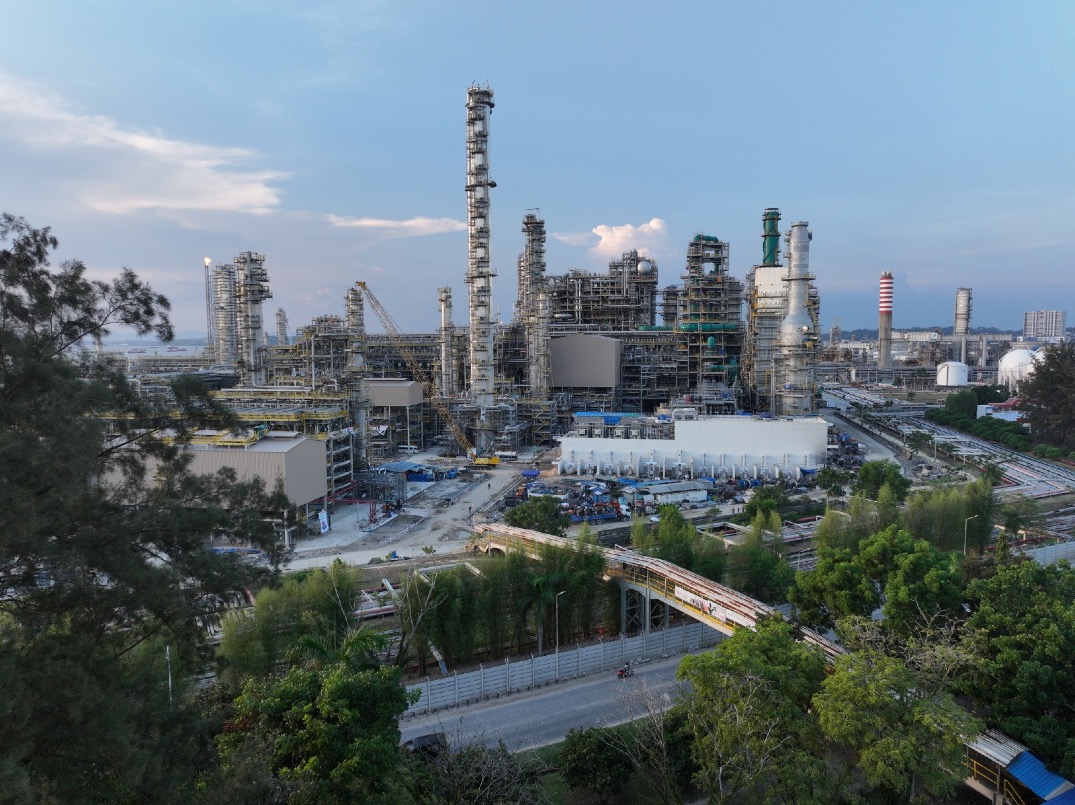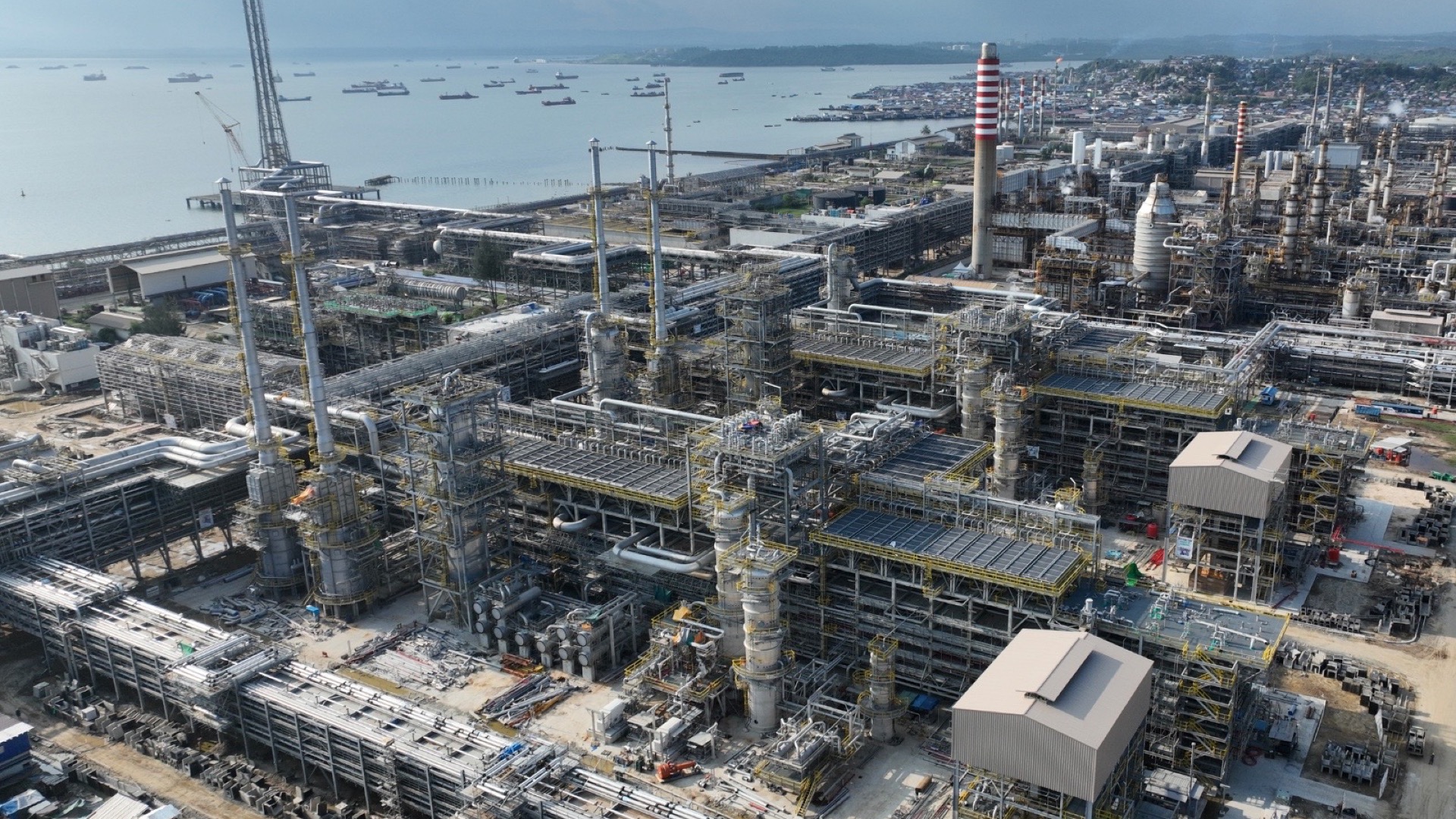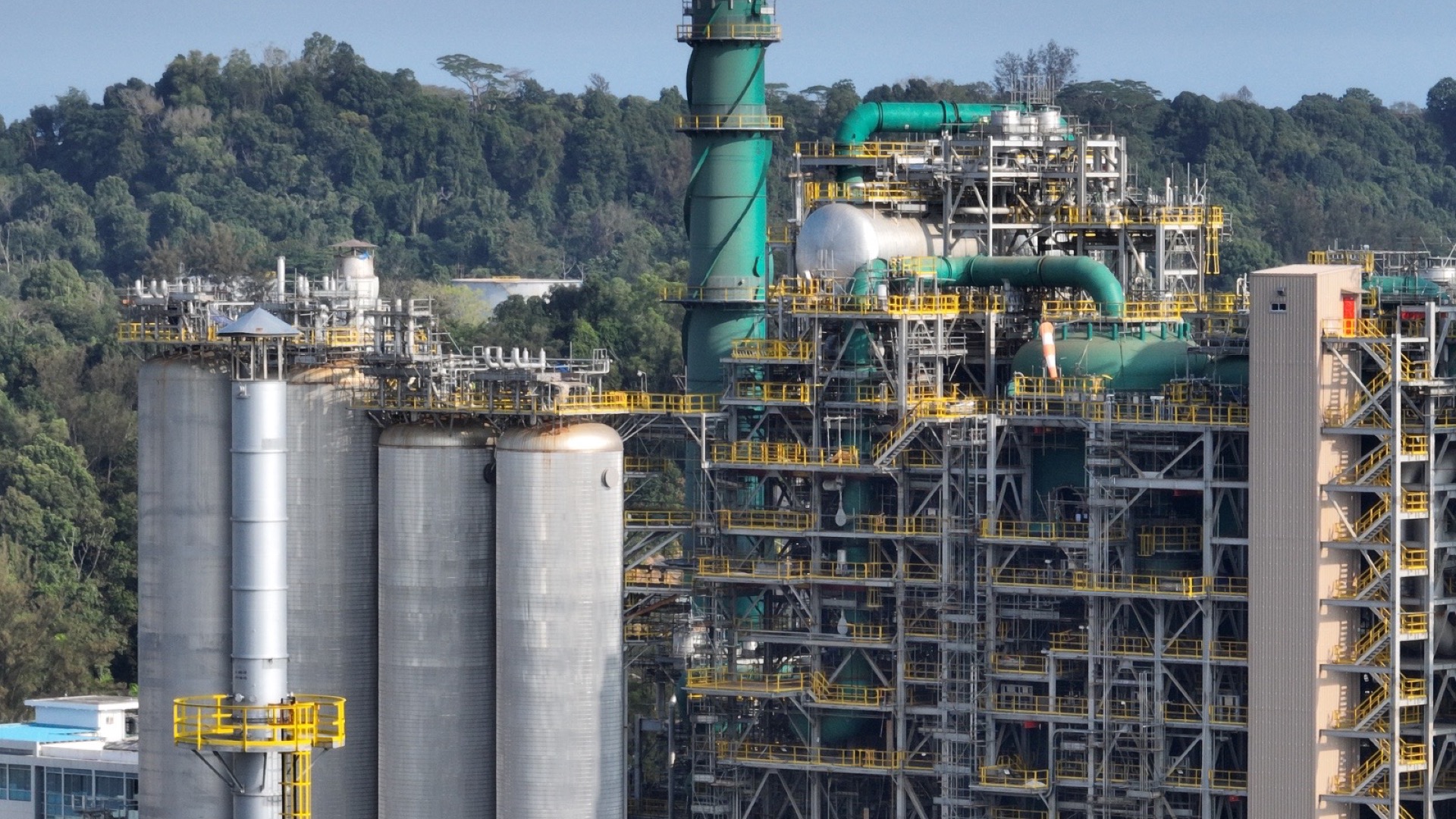Media
Press Release

New Environmentally Friendly Units at the Balikpapan Refinery, Supporting Indonesia’s Energy Transition Roadmap
Friday, 25 October 2024
A crucial aspect of the Balikpapan Refinery Development Master Plan (RDMP) Project is its commitment to environmental sustainability. The Balikpapan Refinery is set to be a pioneer in environmentally friendly operations, aiming to significantly reduce emissions through energy-efficient processes and sustainable products, thus supporting the government’s net-zero emissions program.
“This refinery will contribute to reducing vehicle emissions by producing more eco-friendly fuel products, equivalent to EURO V standards,” said Bambang Harimurti, President Director of PT KPB.
The Balikpapan RDMP Project plans to increase the refinery’s crude oil processing capacity from 260,000 barrels per day to 360,000 barrels per day. This project is a critical element in strengthening national energy resilience and aligns with Pertamina’s energy transition initiatives, focusing on decarbonization, low-carbon business, and carbon offset through modern, environmentally friendly refinery design and technology.
“The Balikpapan RDMP Project aims not only to increase refinery capacity, quality, and complexity but also holds a strong commitment to environmental sustainability,” added Bambang.
The RDMP Balikpapan Project is now completing several new processing units that play a vital role in supporting the refinery’s transition to a green refinery. “We are building the Diesel Hydrotreating (DHT), Naphtha Hydrotreating (NHT), Residual Fluid Catalytic Cracking Naphtha Hydrotreating (RFCC NHT), and Sulphur Recovery Unit (SRU),” said Bambang.
Bambang explained that each unit contributes significantly to emissions reduction, waste management, and enhanced process efficiency.
The DHT unit will lower sulfur content in diesel fuel, while the NHT and RFCC NHT units will reduce sulfur levels in gasoline. Together, these units will produce cleaner fuels that meet EURO V standards, reducing harmful sulfur dioxide (SO₂) emissions, supporting improved air quality, and enhancing fuel combustion efficiency.
The SRU, meanwhile, will minimize sulfur dioxide emissions by processing hydrogen sulfide (H₂S) from other units into elemental sulfur with 99% purity, usable in various industries. The SRU unit will thus reduce potentially harmful sulfur emissions, minimizing air pollution risks.
“The technologies implemented in the Balikpapan RDMP Project’s process units are designed to meet both National and International environmental regulations. Design criteria for refinery processes or production units are based on the IFC World Bank Emission Standards,” explained Bambang.
Technological solutions employed to reduce emissions include De-NOx and Scrubber technologies to decrease NOx and SOx levels in RFCC unit emissions, Low NOx burner types, Fuel Gas usage in heaters, heat recovery from gas turbines and fired heaters to produce steam, and installing High Integrity Pressure Protection Systems (HIPPS) and Liquid Separation Systems to prevent hydrocarbon flaring.
Bambang added that KPB’s mitigation and decarbonization measures have substantially reduced greenhouse gas (GHG) emissions in the project scenario, demonstrating that the implemented technologies significantly reduce the refinery’s carbon footprint.
“With our efforts, total GHG emissions in the baseline project scenario are recorded as 30% lower compared to a scenario without mitigation,” Bambang concluded.
As a leader in the energy transition, Pertamina remains committed to supporting the Net Zero Emission 2060 target by driving programs that directly impact emissions and carbon footprint reduction. Prioritizing safety and environmental sustainability, the Balikpapan RDMP Project stands as Pertamina’s dedication to ensuring Indonesia’s Energy Security, Independence, and Sovereignty.

